Planned Giving at Immanuel – The Immanuel Legacy Circle
Good stewardship of our personal financial assets calls for ongoing financial monitoring and estate planning to ensure the financial security of our families, love ones and charities. We ask you to consider how you can assist in providing for Immanuel, the church that we love, and serve to secure its vitality for future generations. One way you can achieve this goal is through a Planned Gift – the transfer of a valuable asset upon your death. A Planned Gift does not require great wealth or what you may initially consider to be a sizeable economic value.
Planned Giving is a way to support Immanuel Congregational Church in the future through arrangements you make today utilizing a formal, documented promise of intentions. A planned gift to your church is an expression of your values and commitment to Christian stewardship. It sustains God’s mission through the ministry of the church – a lasting legacy. This is why we refer to those who have expressed planned gifts to Immanuel as the Immanuel Legacy Circle.
Planned gifts take many different forms and are sometimes confusing. So, reach out and ask questions without any obligation. As a donor, you have total discretion over your planned gift. You have options for how your gift will be used, what to give and how to give. There are planned gifts you can provide for in a will or trust and planned gifts that provide income to you and/or a beneficiary during your lifetime. And remember, most people do not commit specific dollars as part of their Planned Gift promise, only that the intention has been made in their legal arrangements.
Gifts from your Will
Through a provision in your written and executed will or living trust, you can make a planned gift in the form of cash, securities, real estate or personal property. There are many types of bequests, some coming in the form of specific dollar amounts and others on a percentage-of-assets basis. Consult with your attorney to choose the one that best fits your needs and intentions. Your bequest would be completely deductible for estate tax purposes and could reduce your estate taxes.
Beneficiary Gifts – Retirement Accounts and Other Funds
Naming Immanuel as the beneficiary or one of the beneficiaries of a qualified retirement plan asset such as an IRA or 401(k) will accomplish a charitable goal while realizing a significant tax savings as these assets are often heavily taxed – both income and estate taxes.
Gifts of Life Insurance
Name Immanuel Congregational Church as the beneficiary or one of the beneficiaries of an existing life insurance policy. Or donate an existing, paid up whole life insurance policy you no longer need. Or purchase a new life insurance policy and name Immanuel as the owner and beneficiary.
Gifts of Appreciated Assets
If you give stock or another asset that has appreciated in value, the church can sell the gift and realize the current value, pay no taxes and you will receive the full value for tax deduction and pay no capital gains taxes. This gift can be made at any time, not just as part of your estate.
Gifts that pay you – Charitable Gift Annuities
Your financial gift is invested for you and in return, you or a designee receive an annual income. You receive a charitable deduction on your income tax now and the gift is removed from your estate. At the end of your (or designee’s) life, the principal goes to the church.
Gifts of Personal Property – Real Estate and Other Valuables
Personal property, such as antiques, works of art or vehicles can be donated to the church today or after your lifetime through your estate. We ask that you discuss these assets with the church at the time of your planned gift to assure the intended gift aligns with the church’s needs and abilities.
For real estate, you can either make arrangements to leave the real estate to Immanuel in your will or a simpler approach is to work with an attorney now to establish a Quit-Claim Deed. Using a quit claim deed with a life-use to the donor allows you to retain full use of your property and upon your death, the property would transfer to Immanuel.
Charitable Remainder Trust
A Charitable Remainder Trust is an individually structured trust that makes payments to you and/or designee for your lifetime(s) or a term of years (maximum of 20). At the end of the trust term, the remaining assets are distributed to the church.
Contact Us
Planning your estate and legacy for future generations including your charitable interests, takes careful evaluation. Discussing your charitable intentions with your family members and us can lead to a much better result than going it alone and will ensure that your gift is used just as you wish. Your gifts to the Immanuel endowment may be directed towards either restricted (specific functions or church missions) or unrestricted investment funds so that your intentions are targeted. Act now to be a good steward of the charitable gifts you intend to leave behind and help ensure Immanuel’s impact on future generations. Please contact the Church Office, immanuel06105@gmail.com for more information.


